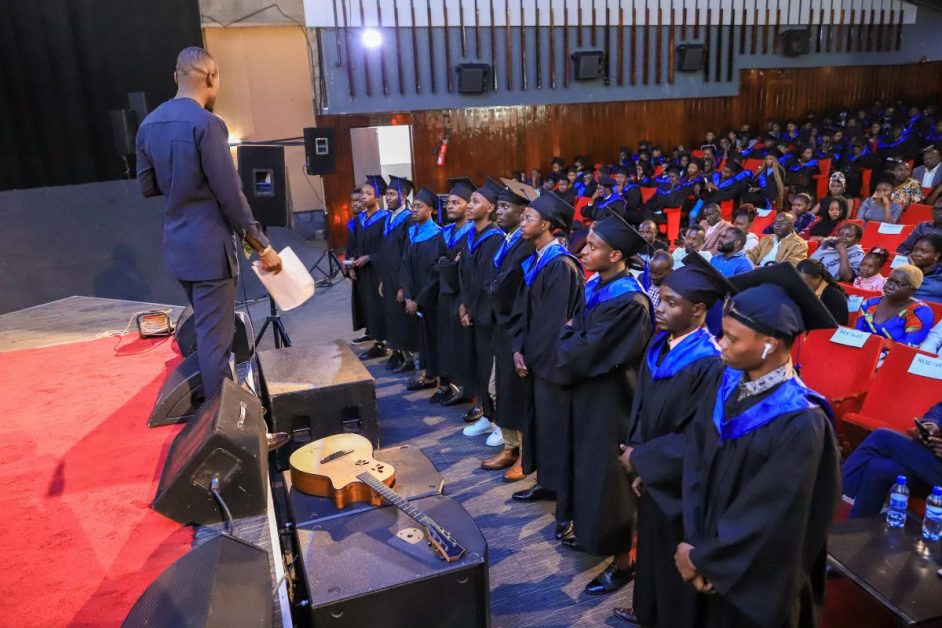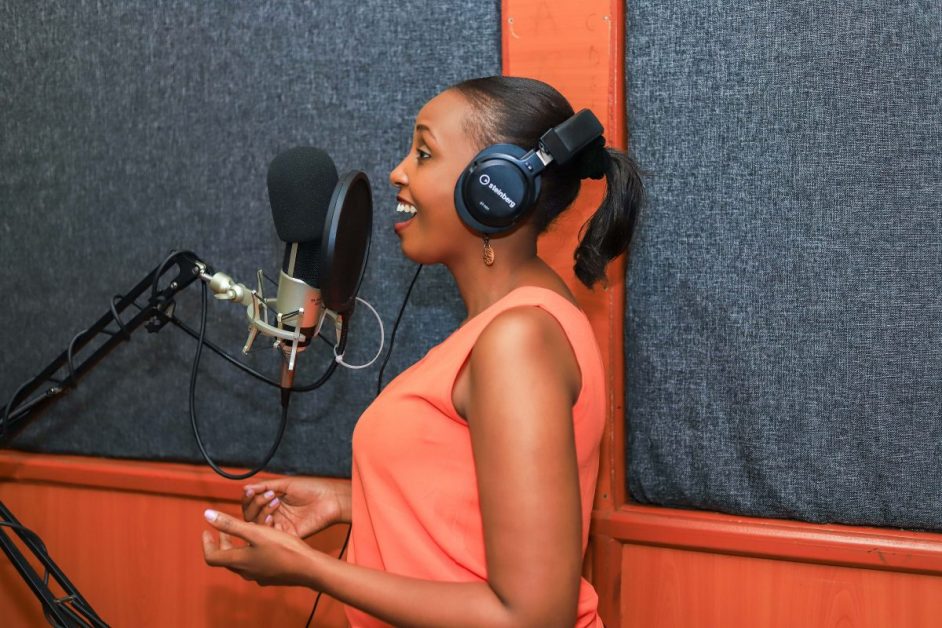- Introduction
A potent and global language, music has the capacity to unite people, arouse feelings, and enhance our lives. Learning to play an instrument or sing may be a very pleasant and rewarding experience for people who have a passion for music. However, a lot of people mistakenly believe that they cannot continue to pursue their interest in music after earning their Kenya Certificate of Secondary Education (KCSE). However, that is untrue. After KCSE or KCPE, learning music is not only feasible but also extremely advantageous in many ways. In this post, we’ll look at the value of learning music after the KCSE as well as the various types of music that can be studied.

- Choosing the Right Instrument
A crucial first step in learning music is selecting the appropriate instrument. There are numerous different instruments available, each with a distinctive sound and playing style. The piano, guitar, violin, drums etc are a few of the more well-known instruments. It’s crucial to keep in mind that the instrument that’s best for you will rely on your individual tastes, objectives, and learning style.
It’s beneficial to take into account the following advice when trying out various instruments:
- Start with the fundamentals: Play certain instruments that are very simple to learn and master, like the guitar or piano. This can help you determine what you prefer and are most at ease playing.
- Examine your objectives: Think about the goals you have for your music. For instance, do you want to perform solo or with a band? You may be able to reduce your alternatives as a result.
- Take into account the instrument’s dimensions and weight. Some instruments, such as the cello or double bass, are bigger and heavier than others, such as the flute or clarinet. Consider whether the size and weight of an instrument are comfortable for you.
- Take price into account: Different instruments have different prices. While some instruments, like flutes, clarinets, and violins, are more reasonably priced, others, like guitars, pianos, and drum sets, can be quite pricey.

It’s critical to take into account the following when you’ve reduced your options:
- Your degree of dedication: It takes a lot of patience, perseverance, and determination to learn how to play an instrument. Regarding how much time and effort you’re prepared to invest in it, be honest with yourself.
- Available resources: Think about whether you have access to an instructor or a group of people who can assist you in your learning. In this case KAMATA MUSIC SCHOOL is the place to be.
- Your way of life Consider the instrument’s compatibility with your way of life. Will it be simple for you to find time to practice regularly?
Choosing the appropriate instrument is a crucial first step in learning music. It’s necessary to experiment with various tools, think about your preferences and goals, and take into account your level of dedication, resources available to you, and way of life. You’ll be well on your way to honing your skills and attaining your musical goals with the correct instrument.
III. Finding the Right Teacher or Program

Finding the best course or instructor is essential for studying music. You can get the direction, encouragement, and tools you need from a qualified teacher or program to advance your musical abilities and reach your objectives. At KAMATA MUSIC SCHOOL, we have professional instructors for all fields of music.
It is impossible to exaggerate the value of a competent teacher or program. A quality instructor or program should be able to:
- Offer you knowledgeable advice and criticism on your playing style and technique.
- Assist you in creating and achieving realistic goals
- Provide you with an organized learning environment.
- Motivate and encourage you to keep studying and practicing.
- Assist you in laying a solid foundation in music theory and performance.
After completing your secondary education, you have a variety of alternatives for continuing your musical education, including private lessons, group classes, and online resources.
For people who value personalized education and one-on-one time, private classes are excellent. They can be modified to meet your unique demands and objectives.
Group sessions are excellent for those who prefer to learn in a social environment and for those who appreciate learning in a group setting.
Online resources like apps, video tutorials, and courses are great if you appreciate self-paced learning and have access to the internet.
It’s critical to consider your preferred method of learning and your objectives when choosing an instructor or program. Spend some time investigating various choices and seeking advice from other musicians. Before making a choice, don’t be reluctant to test out a few different instructors or programs. Finding an instructor or program that works well for you and your learning style is crucial.

Finding the best instructor or program is essential for studying music, to sum up. You can get the direction, encouragement, and tools you need from a qualified teacher or program to advance your musical abilities and reach your objectives. Private lessons, group classes, and online learning materials are just a few of the alternatives accessible for anyone interested in learning music. When choosing a teacher or program, it’s crucial to keep your learning preferences and objectives in mind. You should also feel free to explore other choices before making a choice. Come to Kamata Music School-it is the right choice.
- Regular Practice
Regular practice is crucial to mastering music. You will hone your abilities, enhance your technique, and broaden your understanding of music through diligent practice.
It is impossible to exaggerate the value of consistent practice for the development of skills. Regular practice enables you to:
- Memorize and learn brand
- New musical compositions
- Improve your musicianship and technique
- Increase your dexterity and muscle memory, as well as your confidence and stage presence.
Even if it’s only for a little while each day, scheduling consistent practice time can help you grow steadily over time. The following advice can help you schedule practice time:
- Establish a particular time of day for practicing. Practice in the morning if you are a morning person. Practice in the evening if you prefer that time of day.
- Split up your practice time into manageable portions. Practice for 15-20 minutes a couple of times a day if you don’t have much time.
- Make practicing a daily necessity, just like cleaning your teeth or eating breakfast.
- Take away all distractions from your practice area, including laptops, televisions, and phones.
To make the most of your practice time, it’s important to:
- Develop a plan: Before you begin training, make a list of the goals you want to accomplish.
- Focus: Try not to let distractions take your attention away from what you’re practicing.
- Split it up: Before combining all the aspects of a challenging composition or technique, break it up into smaller bits and practice each one separately.
- Listen: As you play, pay attention to any errors or places where you may improve.
- Have patience: Keep in mind that mastering an instrument requires time, patience, and work.
To sum up, consistent practice is crucial for studying music. You will hone your abilities, enhance your technique, and broaden your understanding of music through diligent practice. Even if it’s only for a little while each day, scheduling consistent practice time can help you grow steadily over time. Plan ahead, stay focused, break down challenging sections, pay attention to your own playing, and be patient if you want to get the most out of your practice sessions. Keep in mind that learning an instrument requires time, patience, and effort, but the benefits are well worth the effort.
- Conclusion
In conclusion, continuing your education in music after high school or even after primary school is a great method to further your interests and talents. There are numerous alternatives available to help you develop your abilities and broaden your understanding of music, whether you are a beginner or have some prior experience playing an instrument.
In order to identify what you enjoy playing and what feels comfortable for you, it’s crucial to choose the correct genre and instrument.
After KCSE, learning music requires finding the suitable instructor or program. You can get the direction, encouragement, and tools you need from a qualified teacher or program to advance your musical abilities and reach your objectives.
Regular practice is crucial to mastering music. You will hone your abilities, enhance your technique, and broaden your understanding of music through diligent practice.
It takes a lifetime to master music, and there is always more to learn and understand. You can continue to hone your skills and reap the numerous rewards of making music with commitment and practice.
It’s crucial to keep in mind that learning music is about more than just being a professional musician; it’s also about the joy that music provides to our life, personal development, and emotional health. Although learning to play a musical instrument might be difficult, the experience is also quite gratifying. No matter where you are in your musical journey, we want you to keep growing and honing your skills. Accept the pursuit of music as a lifelong goal and relish the ride.
Start Your Musical Journey Today at Kamata Music School
The city’s top location for music education is Kamata Music School. For students of all ages and skill levels, our knowledgeable and enthusiastic instructors provide a wide variety of lessons. We offer the ideal lesson for you, whether you’re a beginner trying to learn the fundamentals or an experienced musician looking to advance your abilities.
We at Kamata Music School think that everybody may enjoy music. Because of this, we provide a variety of classes, including those for the piano, guitar, drums, DJ violin, voice coaching and more. Whether a student is just starting out or has been playing for years, our knowledgeable instructors are committed to helping them reach their greatest potential.
However, it goes beyond just picking up a musical instrument. Additionally, we provide courses in music theory, ear training, and performing techniques so that you can gain a comprehensive grasp of music. Additionally, our students get the ability to display their abilities and receive priceless performing experience by participating in regular recitals and concerts.
Look no farther than Kamata Music School if you’re looking for a music school that will assist you in achieving your musical objectives. We are the ideal option for anyone wishing to advance their musical abilities because to our qualified instructors, extensive course selection, and encouraging learning environment. To learn more and arrange a visit to our facilities, get in touch with us right now.

Comments are closed